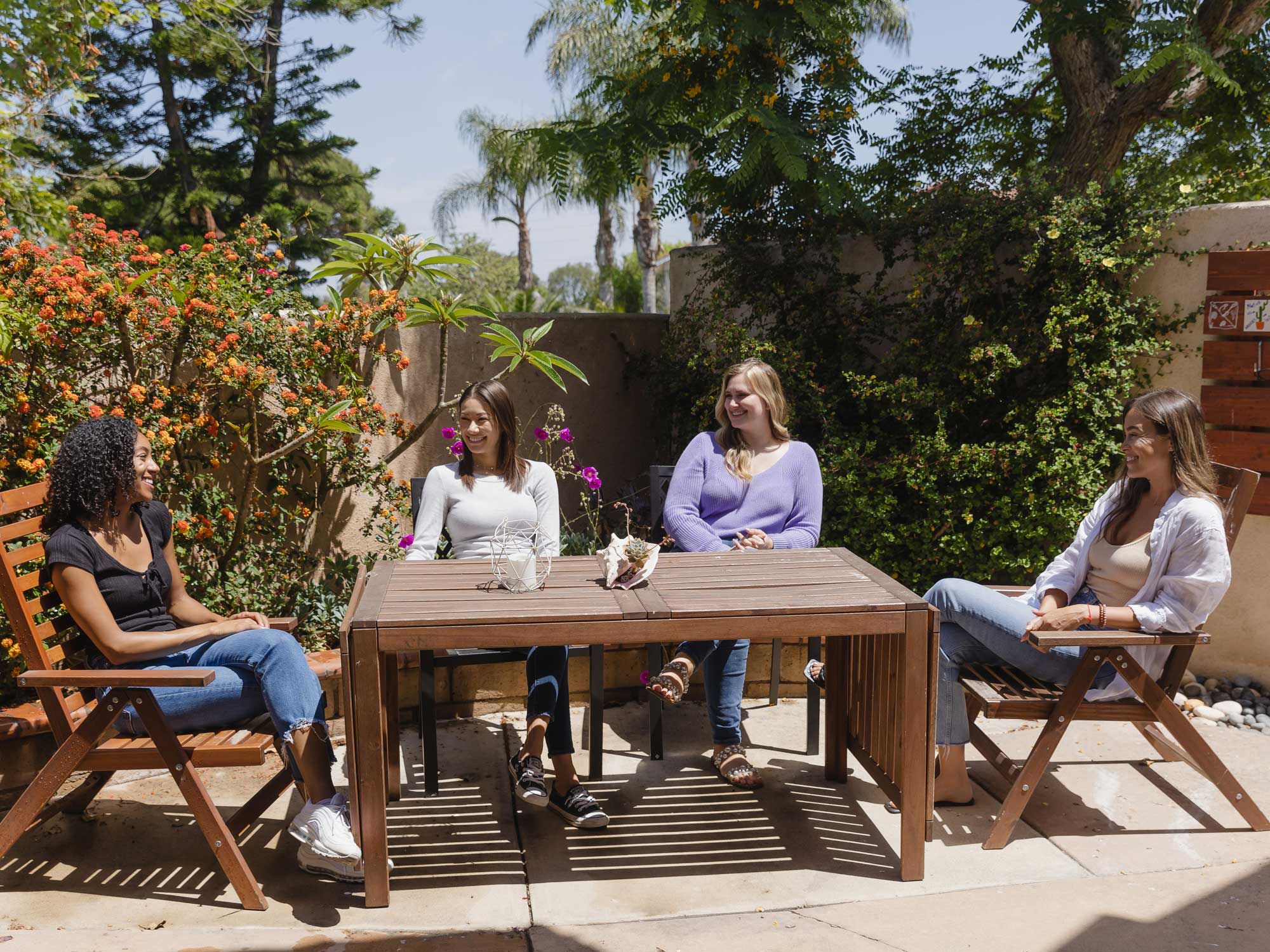FAQS
Choosing a treatment center can be confusing and overwhelming, especially when your family is in crisis. We’re here to help. Below are answers to the questions most loved ones ask before choosing Rising Roads. If you’re still in need of answers, contact our team for more information.

Why have we been referred to Rising Roads for a 90-day stay? My loved one has already completed a program.
What types of therapy are offered?
- Accelerated resolution therapy (ART)
- Brainspotting
- Cognitive behavioral therapy (CBT)
- Dialectical behavioral therapy (DBT)
- Expressive arts therapy
- Eye movement desensitization and reprocessing (EMDR)
- Psychodrama
What is included in the cost?
Included:
- Weekly individual sessions
- Weekly family sessions
- All Rising Roads clinical programming
- Psychiatry
- Weekly $80 grocery card
- Weekend outings
- Transportation
- Gym membership
- Petty cash
- Additional medication charges
- Ancillary services such as individual sessions with the nutritionist or providers outside of the Rising Roads team
What should we pack?
- Hoodie
- Light jacket
- Comfortable pants
- Shorts
- T-shirts
- Jeans
- Bathing suit
- Sneakers
- Socks
- Exercise clothes
- Flip-flops
- Books
- Journal
- Hobby supplies
- Computer and/or iPad
- Photo ID (license) and
- medical insurance card
How soon can we come to visit?
Note: This is a typical timeline and can be adjusted depending on the needs of the family and/or client.
Can we communicate with our loved one?
If I have a question, who do I contact?
Nicole Cavanagh, Operations
ncavanagh@risingroadsrecovery.com
Brandie Ford, Operations
BFord@risingroadsrecovery.com
Your loved ones therapist and case manager. You will receive their contact info upon admission
How much petty cash is needed per week (on average)?
On average, clients spend about $75 to $150 per week in petty cash. This money is used for toiletries, outings with sponsors, extra weekend expenditures beyond Rising Roads, and other costs. Clients turn in receipts each week to account for their spending. This is the beginning of their education about budgeting and using their financial resources wisely.
The best way to provide petty cash is to either send a monthly check or cash to Rising Roads. Rising Roads will secure the petty cash and only give it to clients in small increments.
